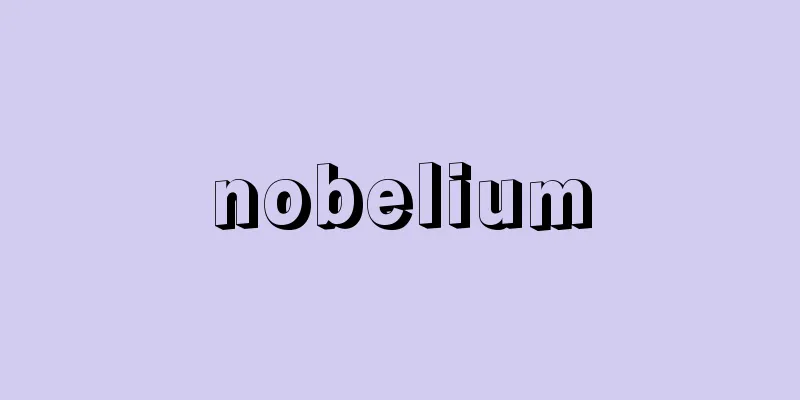Big

|
〘Epitheme〙 (déca- deca- originally meaning ten in Greek) Used before the name of a metric unit to indicate that the unit is ten times larger than that unit. For example, "Decagram" or "Decaliter". Symbol: da or D※Beio Kairan Jikki (1877)〈Kume Kunitake〉Example: "Add the Greek words for 'deca', 'ten', 'hecto', 'one hundred', and 'kilo', and 'one thousand' to each tens place." Source: The Selected Edition of the Japanese Language Dictionary About the Selected Edition of the Japanese Language Dictionary Information |
|
〘語素〙 (déca- deca- 元来ギリシア語で一〇を意味する) メートル法の単位名の上につけて、その単位の一〇倍の単位であることを表わす。「デカグラム」「デカリットル」など。記号 da または D※米欧回覧実記(1877)〈久米邦武〉例言「毎十位に『デカ』十『ヘクト』百『キロ』千 の希臘語を加へ」
出典 精選版 日本国語大辞典精選版 日本国語大辞典について 情報 |
>>: Theorikon (English spelling)
Recommend
Motosu [town] - Motosu
A former town in Motosu County, western Gifu Prefe...
Kamae (punishment) - Kamae
...A type of banishment punishment in the Edo per...
LeWitt, S.
...In the narrow sense, it refers to the above ex...
Little Grebe (English spelling) grebe
A general term for birds in the Podicipedidae fami...
Toei [town] - Toei
A town in Kitashitara County in the Mino-Mikawa Pl...
Imperial Rescript on Education - Kyoikuchokugo
An Imperial Rescript that outlines the ideology o...
Burgmuller, F.
...German composer. He showed excellent musical t...
Electrical surface phenomenon
Electrical phenomena that occur at the interface b...
Kashinreigetsu - May of the Year
Good days and good months. Happy days. Happy and j...
Nagauta - Nagauta
A type of shamisen music. It was born as an accom...
Electronic Components Industry
An industry that manufactures and sells parts that...
Manipulation - Puppetry
Generally speaking, it means the skillful manipul...
Modern Organization Theory
...However, in the 1960s, criticism of this led t...
Lerski, H.
…Albert Renger-Patzsch (1897-1966) began taking p...
Thinocoridae
…A general term for birds in the Thinocoridae fam...









